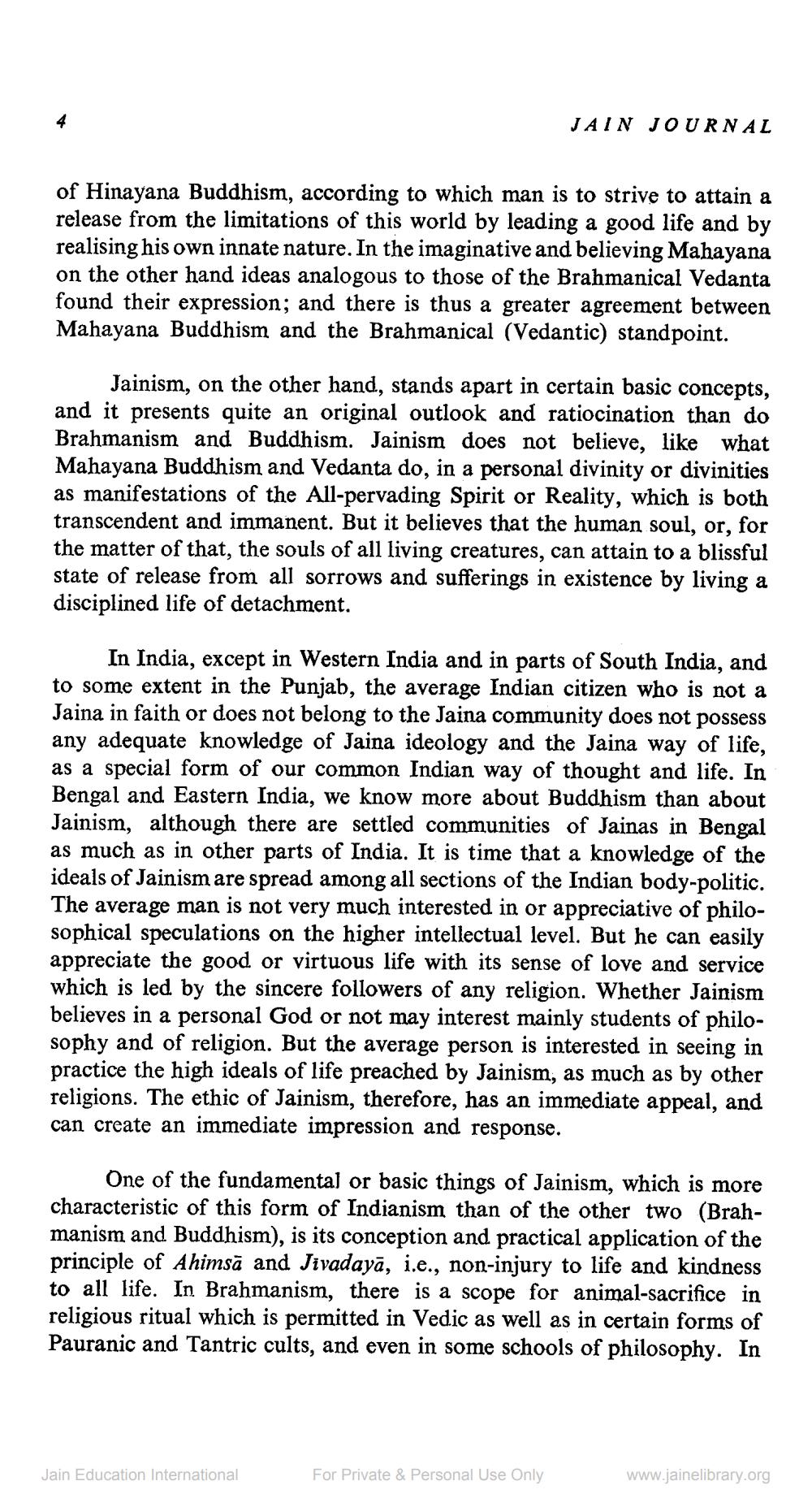Book Title: Jain Journal 1977 07 Author(s): Jain Bhawan Publication Publisher: Jain Bhawan Publication View full book textPage 6
________________ JAIN JOURNAL of Hinayana Buddhism, according to which man is to strive to attain a release from the limitations of this world by leading a good life and by realising his own innate nature. In the imaginative and believing Mahayana on the other hand ideas analogous to those of the Brahmanical Vedanta found their expression; and there is thus a greater agreement between Mahayana Buddhism and the Brahmanical (Vedantic) standpoint. Jainism, on the other hand, stands apart in certain basic concepts, and it presents quite an original outlook and ratiocination than do Brahmanism and Buddhism. Jainism does not believe, like what Mahayana Buddhism and Vedanta do, in a personal divinity or divinities as manifestations of the All-pervading Spirit or Reality, which is both transcendent and immanent. But it believes that the human soul, or, for the matter of that, the souls of all living creatures, can attain to a blissful state of release from all sorrows and sufferings in existence by living a disciplined life of detachment. In India, except in Western India and in parts of South India, and to some extent in the Punjab, the average Indian citizen who is not a Jaina in faith or does not belong to the Jaina community does not possess any adequate knowledge of Jaina ideology and the Jaina way of life, as a special form of our common Indian way of thought and life. In Bengal and Eastern India, we know more about Buddhism than about Jainism, although there are settled communities of Jainas in Bengal as much as in other parts of India. It is time that a knowledge of the ideals of Jainism are spread among all sections of the Indian body-politic. The average man is not very much interested in or appreciative of philosophical speculations on the higher intellectual level. But he can easily appreciate the good or virtuous life with its sense of love and service which is led by the sincere followers of any religion. Whether Jainism believes in a personal God or not may interest mainly students of philosophy and of religion. But the average person is interested in seeing in practice the high ideals of life preached by Jainism, as much as by other religions. The ethic of Jainism, therefore, has an immediate appeal, and can create an immediate impression and response. One of the fundamental or basic things of Jainism, which is more characteristic of this form of Indianism than of the other two (Brahmanism and Buddhism), is its conception and practical application of the principle of Ahimsā and Jivadayā, i.e., non-injury to life and kindness to all life. In Brahmanism, there is a scope for animal-sacrifice in religious ritual which is permitted in Vedic as well as in certain forms of Pauranic and Tantric cults, and even in some schools of philosophy. In Jain Education International For Private & Personal Use Only www.jainelibrary.orgPage Navigation
1 ... 4 5 6 7 8 9 10 11 12 13 14 15 16 17 18 19 20 21 22 23 24 25 26 27 28 29 30 31 32 33 34 35 36 37 38 39 40 41 42 43 44 45 46 47 48 49 50 51 52
